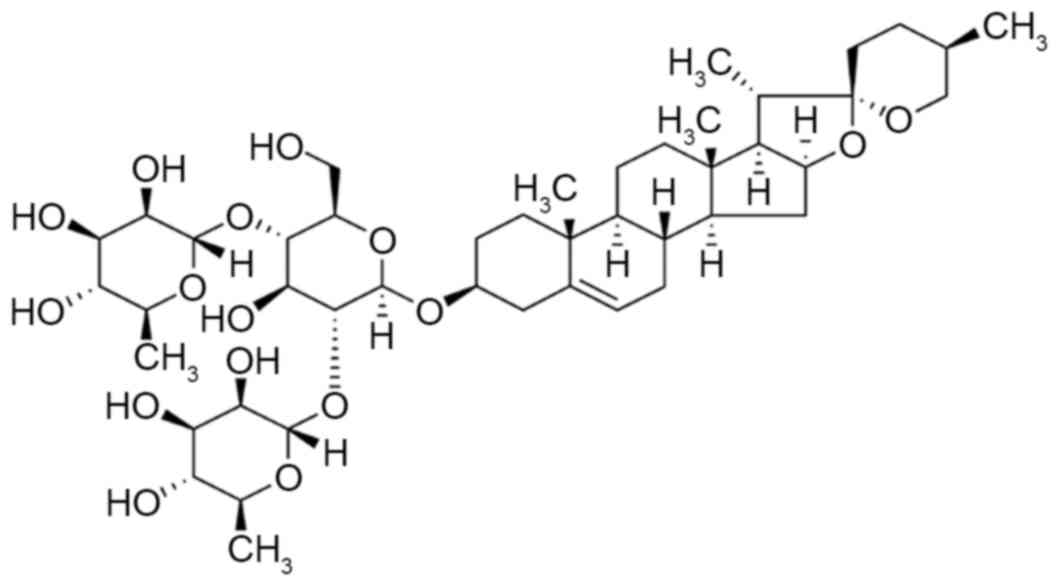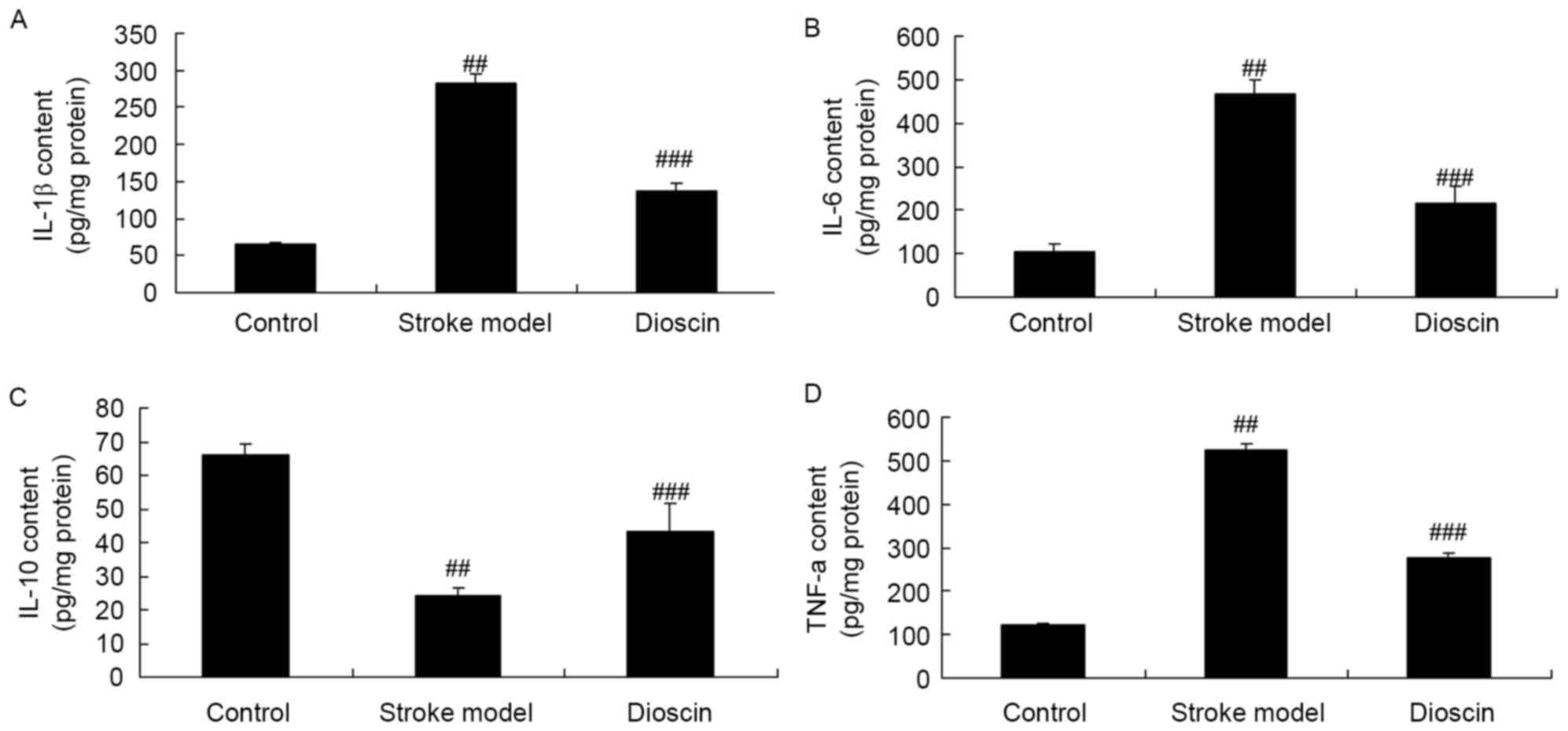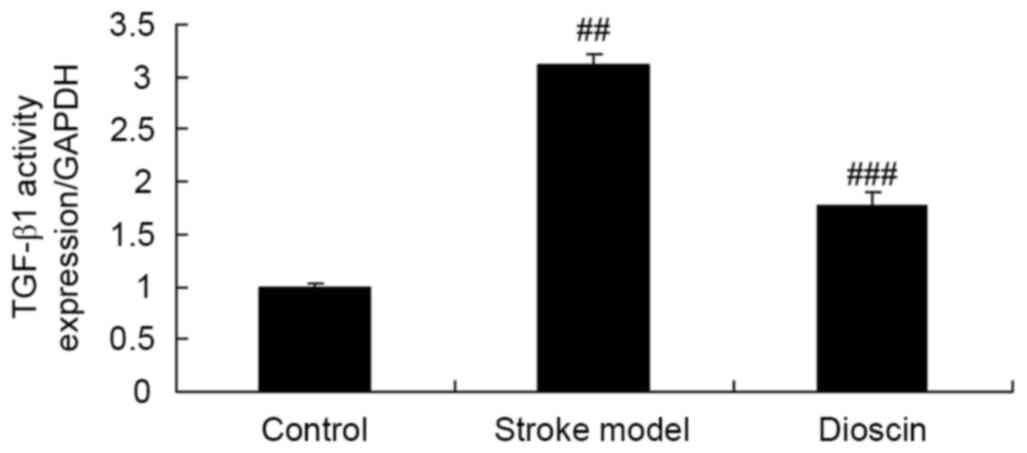|
1
|
Lin YN, Hu CJ, Chi JY, Lin LF, Yen TH, Lin
YK and Liou TH: Effects of repetitive transcranial magnetic
stimulation of the unaffected hemisphere leg motor area in patients
with subacute stroke and substantial leg impairment: A pilot study.
J Rehabil Med. 47:305–310. 2015. View Article : Google Scholar : PubMed/NCBI
|
|
2
|
Verdecchia P, Reboldi G, Angeli F,
Trimarco B, Mancia G, Pogue J, Gao P, Sleight P, Teo K and Yusuf S:
Systolic and diastolic blood pressure changes in relation with
myocardial infarction and stroke in patients with coronary artery
disease. Hypertension. 65:108–114. 2015. View Article : Google Scholar : PubMed/NCBI
|
|
3
|
Jusufovic M, Sandset EC, Bath PM, Karlson
BW and Berge E: Scandinavian Candesartan Acute Stroke Trial Study
Group: Effects of blood pressure lowering in patients with acute
ischemic stroke and carotid artery stenosis. Int J Stroke.
10:354–359. 2015. View Article : Google Scholar : PubMed/NCBI
|
|
4
|
Muchada M, Rubiera M, Rodriguez-Luna D,
Pagola J, Flores A, Kallas J, Sanjuan E, Meler P, Alvarez-Sabin J,
Ribo M and Molina CA: Baseline National Institutes of Health stroke
scale-adjusted time window for intravenous tissue-type plasminogen
activator in acute ischemic stroke. Stroke. 45:1059–1063. 2014.
View Article : Google Scholar : PubMed/NCBI
|
|
5
|
Lindman BR, Zajarias A, Madrazo JA, Shah
J, Gage BF, Novak E, Johnson SN, Chakinala MM, Hohn TA, Saghir M
and Mann DL: Effects of phosphodiesterase type 5 inhibition on
systemic and pulmonary hemodynamics and ventricular function in
patients with severe symptomatic aortic stenosis. Circulation.
125:2353–2362. 2012. View Article : Google Scholar : PubMed/NCBI
|
|
6
|
Xin Q, Cheng B, Pan Y, Liu H, Yang C, Chen
J and Bai B: Neuroprotective effects of apelin-13 on experimental
ischemic stroke through suppression of inflammation. Peptides.
63:55–62. 2015. View Article : Google Scholar : PubMed/NCBI
|
|
7
|
Boehme AK, McClure LA, Zhang Y, Luna JM,
Del Brutto OH, Benavente OR and Elkind MS: Inflammatory markers and
outcomes after lacunar stroke: Levels of inflammatory markers in
treatment of stroke study. Stroke. 47:659–667. 2016.PubMed/NCBI
|
|
8
|
Folyovich A, Biró E, Orbán C, Bajnok A,
Varga V, Béres-Molnár AK, Vásárhelyi B and Toldi G: Relevance of
novel inflammatory markers in stroke-induced immunosuppression. BMC
Neurol. 14:412014. View Article : Google Scholar : PubMed/NCBI
|
|
9
|
Zhang P, Guo ZF, Xu YM, Li YS and Song JG:
N-Butylphthalide (NBP) ameliorated cerebral ischemia
reperfusion-induced brain injury via HGF-regulated TLR4/NF-κB
signaling pathway. Biomed Pharmacother. 83:658–666. 2016.
View Article : Google Scholar : PubMed/NCBI
|
|
10
|
Zhang B, Choi JJ, Eum SY, Daunert S and
Toborek M: TLR4 signaling is involved in brain vascular toxicity of
PCB153 bound to nanoparticles. PLoS One. 8:e631592013. View Article : Google Scholar : PubMed/NCBI
|
|
11
|
Ye L, Yang Y, Zhang X, Cai P, Li R, Chen
D, Wei X, Zhang X, Xu H, Xiao J, et al: The role of bFGF in the
excessive activation of astrocytes is related to the inhibition of
TLR4/NFκB signals. Int J Mol Sci. 17:pii: E37. 2015. View Article : Google Scholar : PubMed/NCBI
|
|
12
|
Qi M, Yin L, Xu L, Tao X, Qi Y, Han X,
Wang C, Xu Y, Sun H, Liu K and Peng J: Dioscin alleviates
lipopolysaccharide-induced inflammatory kidney injury via the
microRNA let-7i/TLR4/MyD88 signaling pathway. Pharmacol Res.
111:509–522. 2016. View Article : Google Scholar : PubMed/NCBI
|
|
13
|
Liu M, Xu Y, Han X, Yin L, Xu L, Qi Y,
Zhao Y, Liu K and Peng J: Dioscin alleviates alcoholic liver
fibrosis by attenuating hepatic stellate cell activation via the
TLR4/MyD88/NF-κB signaling pathway. Sci Rep. 5:180382015.
View Article : Google Scholar : PubMed/NCBI
|
|
14
|
Guo Y, Xing E, Song H, Feng G, Liang X, An
G, Zhao X and Wang M: Therapeutic effect of dioscin on
collagen-induced arthritis through reduction of Th1/Th2. Int
Immunopharmacol. 39:79–83. 2016. View Article : Google Scholar : PubMed/NCBI
|
|
15
|
Lee HJ, Park JS, Yoon YP, Shin YJ, Lee SK,
Kim YS, Hong JH, Son KH and Lee CJ: Dioscin and methylprotodioscin
isolated from the root of Asparagus cochinchinensis suppressed the
gene expression and production of airway MUC5AC mucin induced by
phorbol ester and growth factor. Phytomedicine. 22:568–572. 2015.
View Article : Google Scholar : PubMed/NCBI
|
|
16
|
Zhao X, Xu L, Zheng L, Yin L, Qi Y, Han X,
Xu Y and Peng J: Potent effects of dioscin against gastric cancer
in vitro and in vivo. Phytomedicine. 23:274–282. 2016. View Article : Google Scholar : PubMed/NCBI
|
|
17
|
Cramer SC and Hill MD: REGENESIS-LED
Investigators: Human choriogonadotropin and epoetin alfa in acute
ischemic stroke patients (REGENESIS-LED trial). Int J Stroke.
9:321–327. 2014. View Article : Google Scholar : PubMed/NCBI
|
|
18
|
Punt M, van Alphen B, van de Port IG, van
Dieën JH, Michael K, Outermans J and Wittink H: Clinimetric
properties of a novel feedback device for assessing gait parameters
in stroke survivors. J Neuroeng Rehabil. 11:302014. View Article : Google Scholar : PubMed/NCBI
|
|
19
|
Wang LC, Wu CL, Cheng YY and Tsai KJ:
Deletion of nuclear localizing signal attenuates proinflammatory
activity of prothymosin-alpha and enhances its neuroprotective
effect on transient ischemic stroke. Mol Neurobiol. 54:582–593.
2017. View Article : Google Scholar : PubMed/NCBI
|
|
20
|
Liu W, Wang X, Zheng Y, Shang G, Huang J,
Tao J and Chen L: Electroacupuncture inhibits inflammatory injury
by targeting the miR-9-mediated NF-κB signaling pathway following
ischemic stroke. Mol Med Rep. 13:1618–1626. 2016. View Article : Google Scholar : PubMed/NCBI
|
|
21
|
Liesz A and Kleinschnitz C: Editorial:
Mechanisms of neuroinflammation and inflammatory neurodegeneration
in acute brain injury. Front Cell Neurosci. 9:3002015. View Article : Google Scholar : PubMed/NCBI
|
|
22
|
Tao X, Sun X, Yin L, Han X, Xu L, Qi Y, Xu
Y, Li H, Lin Y, Liu K and Peng J: Dioscin ameliorates cerebral
ischemia/reperfusion injury through the downregulation of TLR4
signaling via HMGB-1 inhibition. Free Radic Biol Med. 84:103–115.
2015. View Article : Google Scholar : PubMed/NCBI
|
|
23
|
Vartanian KB, Stevens SL, Marsh BJ,
Williams-Karnesky R, Lessov NS and Stenzel-Poore MP: LPS
preconditioning redirects TLR signaling following stroke: TRIF-IRF3
plays a seminal role in mediating tolerance to ischemic injury. J
Neuroinflammation. 8:1402011. View Article : Google Scholar : PubMed/NCBI
|
|
24
|
Derkow K, Krüger C, Dembny P and Lehnardt
S: Microglia induce neurotoxic IL-17+ γδ T cells dependent on TLR2,
TLR4, and TLR9 activation. PLoS One. 10:e01358982015. View Article : Google Scholar : PubMed/NCBI
|
|
25
|
Belinga VF, Wu GJ, Yan FL and Limbenga EA:
Splenectomy following MCAO inhibits the TLR4-NF-κB signaling
pathway and protects the brain from neurodegeneration in rats. J
Neuroimmunol. 293:105–113. 2016. View Article : Google Scholar : PubMed/NCBI
|
|
26
|
Sun M, Deng B, Zhao X, Gao C, Yang L, Zhao
H, Yu D, Zhang F, Xu L, Chen L and Sun X: Isoflurane
preconditioning provides neuroprotection against stroke by
regulating the expression of the TLR4 signalling pathway to
alleviate microglial activation. Sci Rep. 5:114452015. View Article : Google Scholar : PubMed/NCBI
|
|
27
|
Zhang J, Wu Y, Weng Z, Zhou T, Feng T and
Lin Y: Glycyrrhizin protects brain against ischemia-reperfusion
injury in mice through HMGB1-TLR4-IL-17A signaling pathway. Brain
Res. 1582:176–186. 2014. View Article : Google Scholar : PubMed/NCBI
|
|
28
|
Zhang J, Fu B, Zhang X, Chen L, Zhang L,
Zhao X, Bai X, Zhu C, Cui L and Wang L: Neuroprotective effect of
bicyclol in rat ischemic stroke: Down-regulates TLR4, TLR9, TRAF6,
NF-κB, MMP-9 and up-regulates claudin-5 expression. Brain Res.
1528:80–88. 2013. View Article : Google Scholar : PubMed/NCBI
|
























